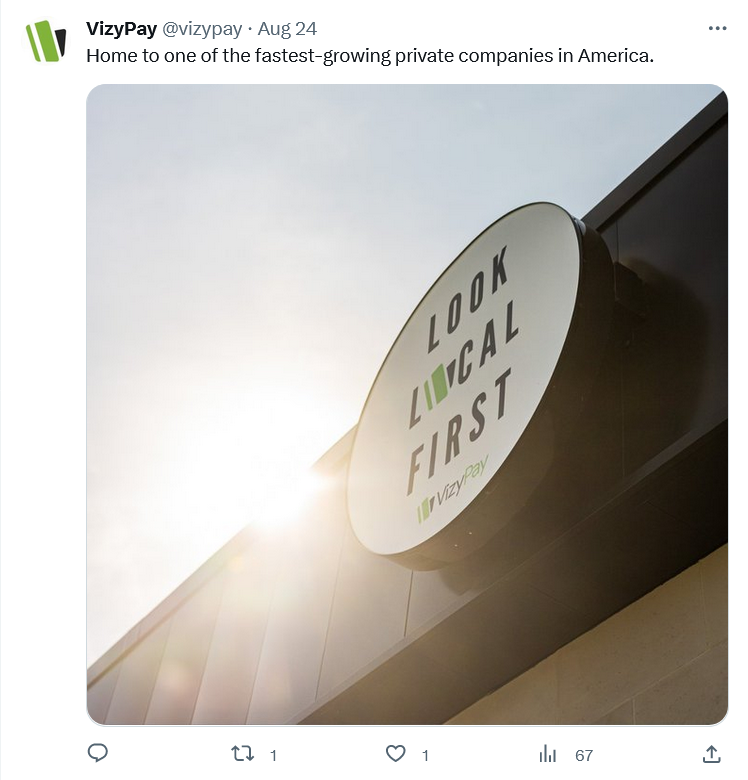Building diversity on the edge in financial technology

• Financial technology in rural America is an unlikely source of diversity in hiring.
• But diversity is available wherever the effort is genuinely embraced.
• Financial technology gives companies more opportunity to recruit based on cultural fit, rather than experience.
More and more businesses, as they look to recruit both younger generations of workers and people whose whole work-life relationship was shifted during the pandemic, are coming to realize that the Old Ways are no longer fit for purpose in the tech-savvy, hyper-agile 2020s.
As algorithms and generative AI evolve to take much of the traditional “grunt work” out of traditional office roles, people are demanding that companies treat them as – shock, horror! – human beings, rather than cogs in the giant wheel of capitalism.
Add to that the fact that time and time again, in study after study, diverse teams and business have been shown to radically outperform homogenous ones, and what you get is a new mood in tech recruiting.
While larger operations may still cling to the ways in which enormous corporations have been traditionally built, with standard interviews, like-for-like recruiting, and a largely immovable hegemony of white, straight, non-disabled men, for smaller and more flexible businesses, the opportunity to dismantle those norms and replace them with a more diverse, intersectional workforce, and reward them with both a sense of purpose and a decent wage, to build more of a community of human beings than a workforce of parts, is a positive and irresistible thing.
Our ongoing conversation with Outhay Lovan, chief strategy officer at Vizypay, a company trying to bring 21st century fintech to the mom-and-pop businesses of rural Iowa, ranged over several crucial topics.
In Part 1, we talked about the way in which mainstream corporate tech America had overlooked this crucial market, and how it was important to treat it differently to how most financial technology organizations are trained to think – to go after the big bucks at all times.
In Part 2, we tackled the skills and diversity crises in financial technology, and Vizypay’s unusual response to that, throwing out traditional focuses on pre-existing skills and experience and centering its recruitment on finding people who were a fit for the company’s culture – meaning it didn’t get bogged down in the skills shortage affecting most of the rest of the industry.
As Part 2 was coming to a close, we began discussing both Outhay’s own path to Vizypay, and her determination that both recruitment and HR should be different to the norm in financial technology once she got in. Both parts of that story show what’s happening in more agile companies aiming to add significant diversity to their teams for both the economic and the “right thing to do” advantages.
Financial technology done differently in Iowa.
THQ:
It hasn’t escaped our notice that you’re both a woman and an Asian American, leading strategy for a financial technology firm specializing in selling to small businesses, in rural Iowa.
Were you local before getting the gig at Vizypay, or did you come in having drunk the Kool-Aid?
OL:
A bit of both, really. Yeah, I was local, I live in Des Moines, but I’d never heard of the company. I caught it on social media. You remember I mentioned we like people to be their true vocal selves on social media? Well, that’s how I first heard of Vizypay. I was working in HR at the time, but I saw these people being really enthused about their work on social media and was pretty much thinking “How do I get me some of that Kool-Aid?”
It was feed after feed on LinkedIn, and I was like, “What is going on there?” All the talk was about the culture and the people, and I figured if I was ever going to get to something like a leading role in HR, it would be all about the culture and the people. So it just felt like a perfect blend.
And when I came in, my first two months I wasn’t tasked to do anything – just observe the environment, observe the culture and the processes. And it was obvious it didn’t have a traditional HR sensibility, but was focused on the people.
So then it was a case of developing a strategy around our people.

Looking local and achieving diversity – a contradiction in terms?
THQ:
Treating people as “actual” people, rather than cogs in the corporate machine?
OL:
Which is the traditional approach, right? A traditional approach to human resources is very tactical in nature. You know, people think of HR as individuals that just process payroll, or just process benefits. It’s always been viewed that way. But now, things need to shift.
I was trained in college to work in that black and white way, but I do best in shades of gray. And I think that’s how we operate as a company, too – pushing boundaries, changing the norm.
Financial technology and diversity along several axes.
THQ:
Let’s talk diversity and inclusion, then. You’re there in rural Iowa. The tech industry generally is very, very underrepresented for women to start with, and very underrepresented for non-white people. What’s your diversity pipeline like right now?
OL:
Yeah, actually, we’re pretty diverse. Austin McNab, our co-founder, came from a company that was very white-male dominant. So it was always a big thing for him – how do we bring more diverse leadership to the table, how do we bring more leaders of female minorities to forums, to conferences, to seminars?
A majority of people here are of Asian American descent, including myself. And a lot of them are first generation immigrants, like myself. And as we talk about our culture, we talk about what drives you, the parts of your life that are giving you the grit to be here.
I grew up poor. My family lived in a shack. We were sponsored to come here by a Mennonite church, which sounds crazy, but it’s also very humbling. But as Asian Americans, we do have a voice and we are loud, and we want to be proud about that. And you don’t see that often, especially here in Iowa.
The importance of grit in financial technology.
THQ:
Without in any sense dissing Iowa, it’s part of America where it instinctively feels like if you focus on local recruitment, as you do, it’s going to be hard to find diversity.

This is not your traditional financial technology sales environment.
OL:
Exactly. You’re absolutely right. People think of Iowa and tell me “Oh, you adapted very well.” But I’m like “Man, I was raised in Iowa. What are you talking about?” Yes, you can’t get any more rural America than Iowa. But yeah, there are Asians in Iowa, too.
In terms of diversity, I don’t have the racial demographics to hand, but 46% of our workforce are millennials, 39% are Gen Z. And – which lots of people find to be the kicker – 95% of our workforce come from outside the payments industry.

Gen Z – the new hope for diversity in fintech?
THQ:
So diversity sliced in a couple of ways that most companies don’t think of. That 95% figure is enough to give bigger, traditional companies a bout of the cold sweats. And that’s down to the culture-first approach? Where the recruitment process is based on your fit with the company culture, rather than your pre-existing education or experience?
OL:
Exactly, yes. Everything is coachable. If you’re an individual that is open, we’re willing to give you a chance. We’ve had people with 10, 15 years of sales experience, and they come on, and to be honest with you, some of them struggle, because it’s different to what we do. It’s hard work to be boots on the ground, door to door. And that’s where they think, “Okay, I got it, I’m a veteran salesperson,” but we hold them accountable.
But we also have an individual who was a delivery driver, and when they dropped off equipment to their customers, they’d cross-sell items. That person became very successful, because they followed the process. They didn’t have years of years of experience that tainted their mindset. They were willing to go along with the process, follow the process, understand the process. And they had the eagerness, they had the drive.
It’s not about your years of experience. It’s about who you are, and whether or not you have what it takes.
That means we’re much more open to hiring across a range of diversity lines, because for us it’s all about whether you understand the culture, and whether you have the grit to do the job in this different environment, in this different way.










